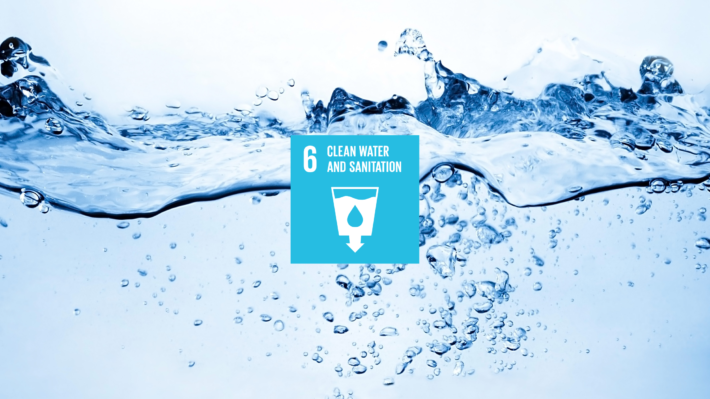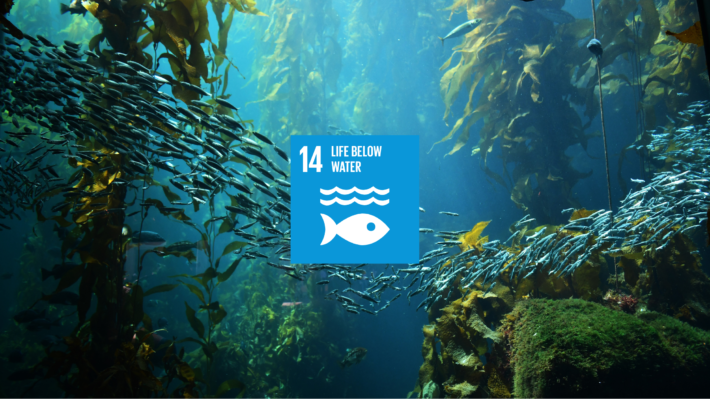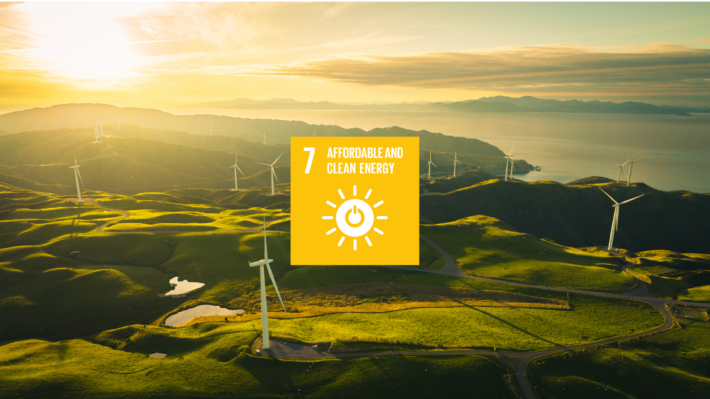Achieving Sustainable Development: SDG 12 Responsible Consumption and Production
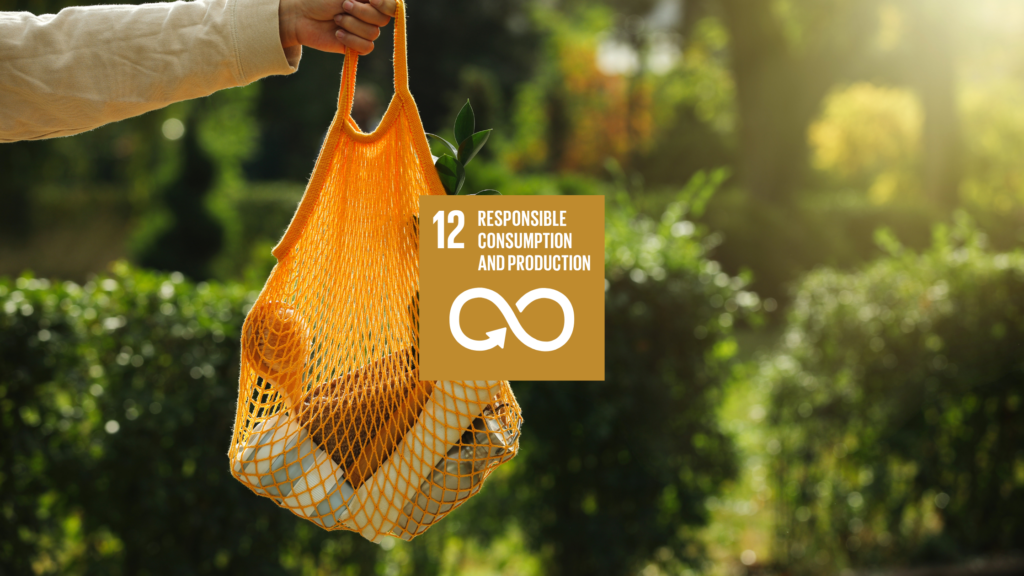
The way we consume and produce goods has a profound impact on the environment, economy, and society. SDG 12, Responsible Consumption and Production, emphasizes the need to create sustainable systems that minimize waste, reduce pollution, conserve resources, and promote ethical business practices. It addresses issues across the entire production and consumption cycle—from how raw materials are extracted and processed, to how goods are manufactured, distributed, used, and disposed of. The goal is to ensure that economic growth and human well-being can continue without compromising the health of the planet.
Responsible Consumption and Production Targets
SDG 12 will require coordinated efforts across sectors and regions, with shifts in behavior, technology, and policy to ensure long-term prosperity within the planet’s limits.
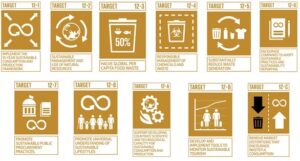
Target 12.1: Implement Sustainable Consumption and Production (SCP) Frameworks
Countries are encouraged to adopt national and sectoral strategies for sustainable consumption and production patterns. This target builds on global frameworks such as the 10-Year Framework of Programs on Sustainable Consumption and Production (10YFP), which provides guidelines to help governments, businesses, and consumers reduce environmental impacts.
Target 12.2: Efficient Management of Natural Resources
To prevent overexploitation, the sustainable management of natural resources is essential. This target aims to ensure that resources—such as water, energy, minerals, and forests—are used more efficiently and equitably, ensuring they remain available for future generations.
Target 12.3: Halve Global Food Waste
The goal is to halve global food waste at the retail and consumer levels by 2030 and reduce food losses throughout supply chains. Tackling food waste not only addresses hunger but also reduces pressure on agriculture and lowers greenhouse gas emissions from wasted food decomposing in landfills.
Target 12.4: Environmentally Sound Management of Chemicals and Waste
Overfishing must be curbed to allow fish stocks to recover to sustainable levels. Promoting science-based fisheries management and eliminating illegal, unreported, and unregulated (IUU) fishing are crucial to maintaining biodiversity and supporting coastal economies..
Target 12.5: Substantially Reduce Waste Generation
Encouraging a shift to circular economies, this target promotes waste reduction through prevention, recycling, and reuse. Emphasis is placed on eliminating single-use materials and promoting product designs that extend the life cycle of goods.
Target 12.6: Encourage Sustainable Practices in Businesses
Companies, especially large and multinational corporations, are urged to adopt sustainable practices and report their progress transparently. Sustainability reporting promotes accountability and helps businesses align their operations with environmental, social, and governance (ESG) principles.
Target 12.7: Promote Sustainable Public Procurement Practices
Governments are encouraged to integrate sustainability criteria into public procurement policies, ensuring that public spending supports environmentally and socially responsible products and services. This helps drive demand for sustainable goods and influences market trends.
Target 12.8: Promote Sustainable Lifestyles and Awareness
Consumers play a vital role in driving sustainable consumption patterns. This target seeks to raise public awareness about the environmental impacts of everyday choices, empowering individuals to adopt sustainable lifestyles through better education and access to sustainable alternatives.
Target 12.A: Support Developing Countries in Sustainable Practices
Developing countries often face financial and technological challenges in adopting sustainable consumption and production patterns. This target emphasizes the importance of providing financial support, technology transfer, and capacity-building initiatives to ensure all nations can participate in global sustainability efforts.
Target 12.B: Develop Tools to Monitor Sustainable Tourism
Tourism, while essential to many economies, can place significant pressure on the environment. This target calls for developing tools to measure the impact of tourism on sustainability and encourages practices that reduce resource consumption and protect cultural and natural heritage.
Target 12.C: Rationalize Fossil Fuel Subsidies
Fossil fuel subsidies encourage wasteful consumption and exacerbate environmental harm by supporting industries that emit large amounts of greenhouse gases. Phasing out or repurposing these subsidies promotes a shift toward cleaner energy sources and encourages investment in renewable alternatives.
Tracking the progress of SDG 12 requires monitoring various indicators related to resource efficiency, waste management, corporate sustainability, and consumer behavior. Key performance indicators (KPIs) include:
- Implementing SCP Frameworks (Target 12.1): The number of countries that develop, adopt, and implement national action plans for Sustainable Consumption and Production (SCP) aligned with the 10-Year Framework of Programs (10YFP) is tracked to monitor policy-level progress.
- Efficient Management of Natural Resources (Target 12.2): The material footprint per capita and per unit of GDP measure how efficiently resources are consumed and whether countries are reducing their dependency on non-renewable materials.
- Halving Global Food Waste (Target 12.3): Food loss and waste indices assess reductions in food loss along supply chains and food waste at consumer and retail levels, encouraging more sustainable food systems.
- Environmentally Sound Management of Chemicals and Waste (Target 12.4): Indicators monitor the generation and safe treatment of hazardous waste to prevent pollution and ensure chemicals are managed responsibly throughout their lifecycle.
- Reducing Waste Generation (Target 12.5): Recycling rates and reuse initiatives measure progress in shifting toward circular economies and reducing overall waste output.
- Corporate Sustainability Practices (Target 12.6): The percentage of companies publishing sustainability reports reflects the extent to which businesses adopt and report on sustainable practices.
- Sustainable Public Procurement (Target 12.7): The share of public procurement that includes sustainability criteria tracks how well governments align spending with sustainable practices.
- Promoting Sustainable Lifestyles (Target 12.8): Progress is evaluated through awareness campaigns, educational programs, and public access to sustainable alternatives, which encourage behavior changes toward more responsible consumption.
- Support for Developing Countries (Target 12.A): Financial support, technology transfer, and capacity-building efforts are measured to assess how well developing nations are being equipped to adopt sustainable production and consumption systems.
- Sustainable Tourism Monitoring (Target 12.B): The development and use of tools to assess the environmental and social impacts of tourism track efforts toward sustainable tourism and responsible management of popular destinations.
- Rationalizing Fossil Fuel Subsidies (Target 12.C): Indicators monitor fossil fuel subsidies, measuring shifts in government spending and progress toward phasing them out or redirecting them toward cleaner energy solutions.
These indicators provide insight into where progress is being made and where further efforts are required. Data is collected from national statistics offices, corporate reports, and international organizations such as the UN Environment Programme (UNEP) to evaluate trends and benchmark progress.
Progress So Far
Progress towards SDG 12 has been uneven, with encouraging developments in some areas but persistent challenges in others.
Implementation of SCP Frameworks and Resource Efficiency
Several countries have adopted national strategies for sustainable consumption and production, aligning their policies with international frameworks such as the 10YFP. However, the pace of change remains slow, particularly in resource-intensive sectors. While some nations have successfully reduced their material footprint, global resource consumption continues to rise, driven by population growth and economic expansion.
Efforts to Reduce Food Waste
Global initiatives aimed at reducing food waste have gained traction, with supermarkets, restaurants, and consumers becoming more conscious of the issue. Campaigns to raise awareness and encourage sustainable consumption have led to reduced waste in certain regions. However, food loss along supply chains, especially in developing countries, remains a major challenge due to inadequate infrastructure and storage facilities.
Hazardous Waste Management and Recycling
Efforts to manage chemicals and hazardous waste have improved, with stricter regulations in place in many countries. However, developing nations often struggle with hazardous waste management due to limited capacity and funding. The global recycling rate has increased slightly, but much more progress is needed to meet waste reduction targets and establish circular economies.
Business Sustainability and Public Procurement
The number of companies publishing sustainability reports has increased, indicating growing corporate awareness of responsible production. However, many businesses still lag behind in adopting comprehensive sustainability practices. Governments are also making progress in promoting sustainable public procurement, although implementation varies across regions and sectors.
Challenges in Fossil Fuel Subsidy Reform
Although some countries have begun phasing out fossil fuel subsidies, progress has been slow, particularly in economies heavily reliant on fossil fuels. The transition toward renewable energy sources is underway, but fossil fuel subsidies continue to undermine efforts to reduce carbon emissions and promote cleaner energy alternatives.
Conclusion
SDG 12, Responsible Consumption and Production, is a crucial component of the global effort to achieve sustainable development. While progress has been made in areas such as food waste reduction, business sustainability, and waste management, significant challenges remain. Achieving this goal will require stronger policy frameworks, increased investment in sustainable technologies, and greater public awareness of sustainable consumption. Governments, businesses, and individuals all have a role to play in shifting towards more responsible consumption and production patterns. Only through coordinated efforts can we reduce environmental pressures, build more resilient economies, and ensure that future generations can thrive within the planet’s ecological limits.


